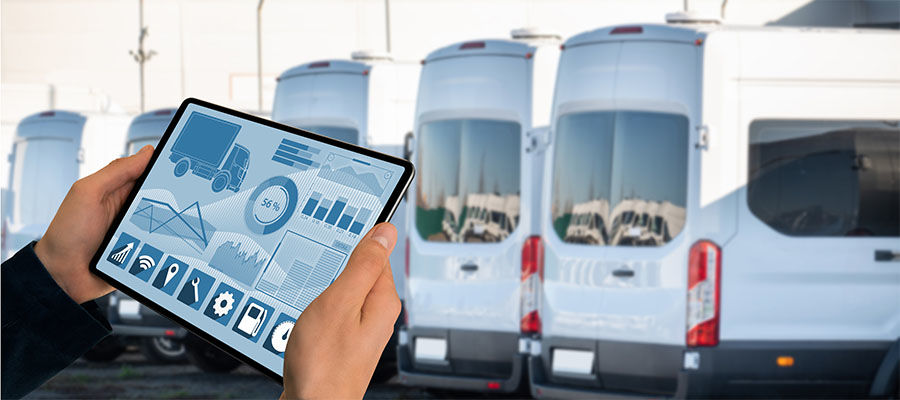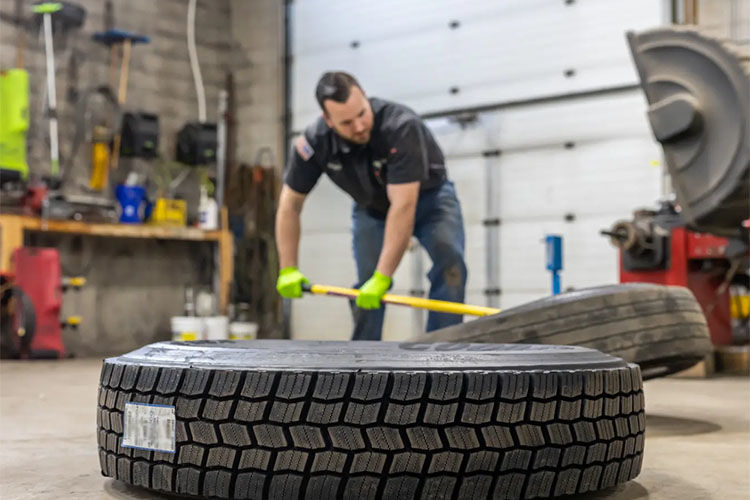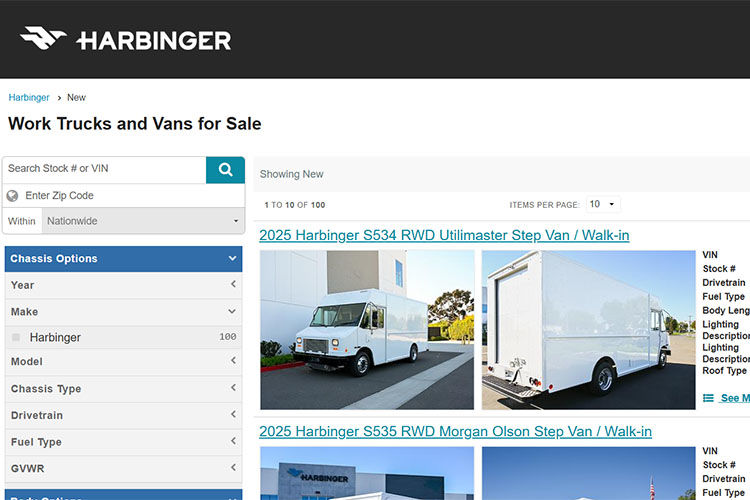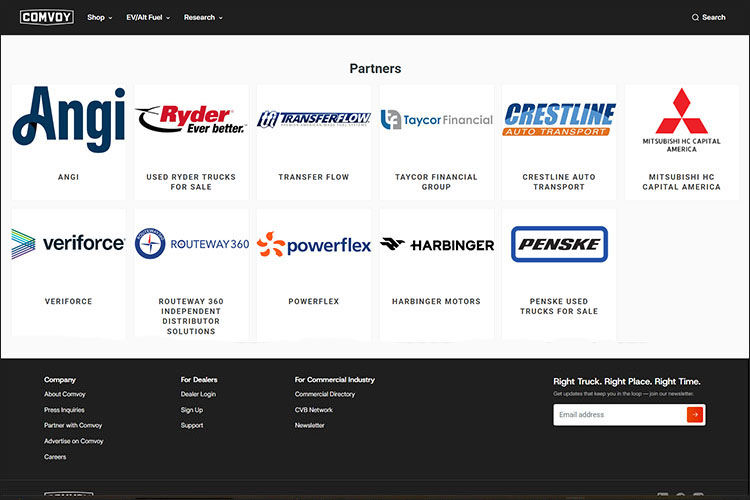Integrated Fleet Management


Integrated Fleet Management
Human beings are naturally drawn to whatever is currently of interest to their peers, the newest information on their feed, the best-sellers of anything. We want to know what’s trending now, especially trends that have an influence on the success of our business.
As is the case with most trends, those within the commercial vehicle industry are reflections of multiple influences. What we’re seeing now is a confluence of unprecedented connectivity, the explosive emergence of AI, and the gradual uptick of EV adoption.
This confluence is a perfect storm for the rising trend of integrated fleet management.
Enabling A Trend
The Industrial Internet of Things (IIoT)
The Industrial Internet of Things (IIoT) is a term used to define the network of interconnected devices used in the industrial/commercial sector. It is a subset of the broader concept known as the Internet of Things (IoT). IIoT employs smart sensors, actuators, and other devices, such as radio frequency identification tags, to improve commercial processes. These devices are linked together to offer data collection, exchange, and analysis.
Hardware and software providers are becoming increasingly aware of the tremendous potential this kind of connectivity offers to businesses that depend on commercial vehicles.
Artificial Intelligence
In today’s increasingly competitive markets, digital transformation is critical to achieving new levels of sustainability and profitability. The challenge, though, is that increasing digitization multiplies the amount of data a company must contend with. Knowing that what we do with data is as important as the data itself, commercial or industrial, Artificial Intelligence (AI) becomes a key enabler of that change.
With computational abilities far beyond human limitations, AI can significantly aid fleet managers in dealing with data in multiple ways.
The Commercial EV Connection
In the last few years, more than one automotive executive has alluded to modern vehicles, EVs in particular, as being a lot like computers on wheels. This reality makes them a natural component in a connected world. Although non-EVs have been progressively more able to integrate with the IIoT, EVs have connectivity as a core element from the beginning.
SHOP ADVANCED FUEL VEHICLES NOW
The relentless promulgation of EVs has given birth to a connected-first kind of mindset that is permeating the entire transportation sector. Fleet management is a prime focal point for this level of connectivity.
What is integrated fleet management?
Fleet Management refers to a system of processes and actions that ensure a fleet of vehicles operates on time, within budget, and at maximum efficiency. An integrated fleet management system (IFMS) is a sophisticated software solution specifically designed to streamline the management of a fleet’s vehicles, drivers, and associated assets and processes.
The key to its integration lies in the unification of various hardware modules and functionalities into one shared platform. This allows an organization to effectively monitor, control, and scrutinize its entire fleet both in real-time and with data-driven retrospect.
The integration level, or scope, typically depends on the specific organizational needs and the fleet size. Some fleet management software provides flexible packages depending on these factors. The process involves a combination of hardware and software components,
How does integrated fleet management affect my business?
One significant impact of an integrated system is on fleet ROI. Various studies indicate that integrating fleet management systems has a positive impact on ROI by increasing efficiency and reducing costs.
Integration in fleet management systems primarily focuses on harmonizing various systems to provide end-to-end assistance and visibility. These systems have many features and benefits that help optimize operations, reduce costs, and improve customer service by providing insights into vehicle performance, driver behavior, and overall fleet efficiency.
Typical areas of operation that might be integrated include:
Automating Fleet Management Tasks: Modern AI-based fleet management software automates tasks, reducing manual interventions and paperwork. This automation can simplify management procedures and ensure better accuracy.
Optimized Decision-making: AI-driven data can streamline decisions, helping fleet managers improve components like driver safety, cost tracking, and overall fleet operations.
Effective Risk Management: AI and data insights synergize to offer exceptional benefits in fleet risk management. AI can help predict and identify potential risks, allowing managers to address them proactively.
Predictive Analytics and Real-time Monitoring: AI revolutionizes the way fleet managers operate by providing predictable analytics and real-time monitoring capabilities. AI can analyze vast amounts of data to generate insights on things like route optimization and vehicle performance.
Predict, Optimize, Automate: With AI-driven Fleet Management, managers can predict outcomes, optimize operations, and automate processes, such as:
• “Fuel” usage and mileage
• GPS tracking
• Centralized telematics
• Load management
• Dispatching
• Fleet cameras
• Tire inspection
• Vehicle inspection
• Driver training and behavior management
Seeing how every one of these functions impacts company profits, it’s no wonder integrated fleet management is trending now. We are fortunate to live in a time of such tremendous technological innovation, and the advances that we see today are truly remarkable.
Business owners and fleet managers must stay up-to-date on the latest developments in the industry. An integrated fleet management system can be a game changer for any company looking to improve their efficiency and ROI, so it’s worth taking a closer look into what they can offer.
Published on: March 13, 2024 Driving Business Growth Through Financial Flexibility: How You Buy Your Truck Matters
Driving Business Growth Through Financial Flexibility: How You Buy Your Truck Matters The Comvoy 2026 Event Calendar: We’ll See You There
The Comvoy 2026 Event Calendar: We’ll See You There Wheel Safety Is Your Business: How to Protect Your Fleet and Your Bottom Line
Wheel Safety Is Your Business: How to Protect Your Fleet and Your Bottom Line Harbinger Electric Step Vans and Cab Chassis Vehicles Now Available on Comvoy
Harbinger Electric Step Vans and Cab Chassis Vehicles Now Available on Comvoy Comvoy’s Partner Network: Your Shortcut to Smarter Fleet Solutions
Comvoy’s Partner Network: Your Shortcut to Smarter Fleet Solutions







